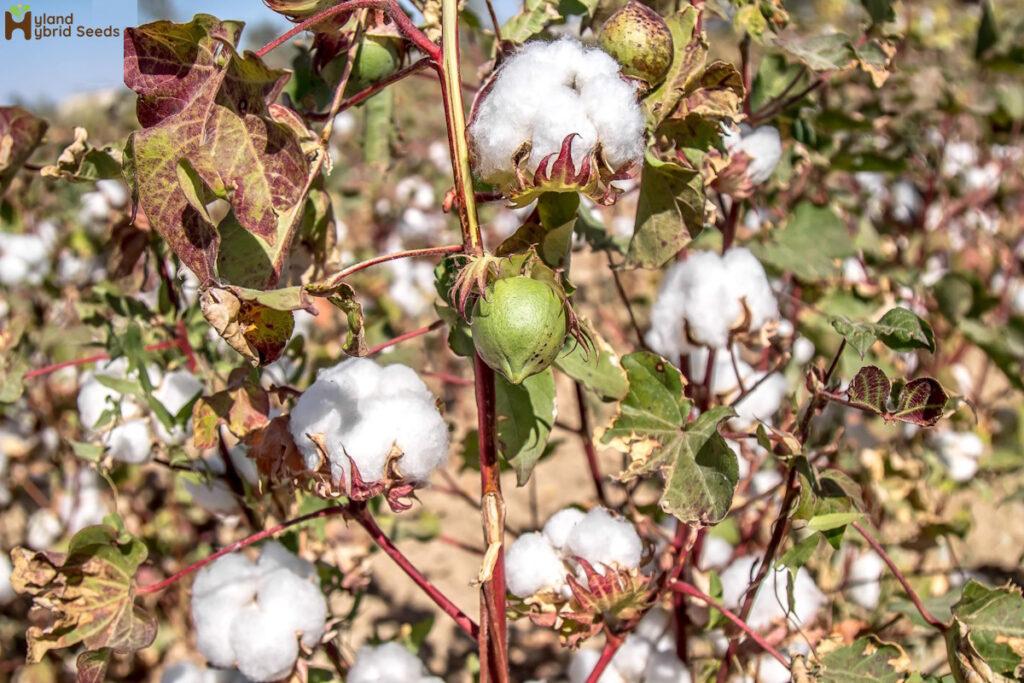
Hybrid cotton seeds have transformed the cotton industry, offering increased yields, improved fiber quality, and enhanced disease resistance. Created through crossbreeding genetically diverse parent plants, these seeds provide superior adaptability to various soil and climate conditions, ensuring consistent performance for farmers.
Importance of Disease Resistance in Cotton Farming
Cotton crops are vulnerable to diseases like bacterial blight, cotton leaf curl virus (CLCV), and fungal infections like fusarium and verticillium wilts. These diseases can severely impact yields and increase reliance on chemical treatments. However, hybrid cotton seeds are bred to possess natural resistance, reducing crop loss and minimizing the need for excessive pesticide use. This contributes to more sustainable and cost-effective farming practices.
Economic Benefits of Hybrid Cotton Seeds
- Higher Yields: Hybrid cotton varieties produce more cotton bolls per plant, leading to greater output per acre, benefiting farmers looking to improve profitability.
- Lower Input Costs: Due to their disease resistance, hybrid cotton crops require fewer chemical treatments, reducing expenses and promoting eco-friendly farming.
- Superior Fiber Quality: Cotton grown from hybrid seeds has longer, stronger, and more uniform fibers, making it highly sought after by the textile industry.
- Climate Adaptability: Hybrid seeds are designed to withstand environmental stresses, ensuring stable yields even in unpredictable weather conditions.
Best Practices for Growing Hybrid Cotton
To maximize the benefits of hybrid cotton seeds, farmers should follow these essential practices:
- Soil Preparation: Conduct soil tests and apply appropriate fertilizers to create optimal growing conditions.
- Timely Planting: Align planting schedules with regional climate patterns for the best germination results.
- Efficient Water Management: Use drip irrigation or other water-saving techniques to maintain consistent soil moisture.
- Integrated Pest Management (IPM): Implement biological controls and cultural practices to manage pests with minimal chemical intervention.
- Regular Crop Monitoring: Frequent inspection of crops helps detect issues early, allowing for timely intervention.
Accessing High-Quality Seeds for Better Yields
Farmers looking to enhance their agricultural success can find high-quality hybrid seeds from reputable suppliers. Whether growing cotton or other crops like vegetables, choosing the right seeds plays a crucial role in achieving high yields and better returns. For those interested in expanding their farming options, reliable suppliers also offer vegetable seeds such as lady finger, brinjal, and tomato, as well as specialty varieties like green chilli and red chilli seeds.
By adopting hybrid cotton seeds and following best agricultural practices, farmers can achieve higher profitability and contribute to a more sustainable and productive farming future.

